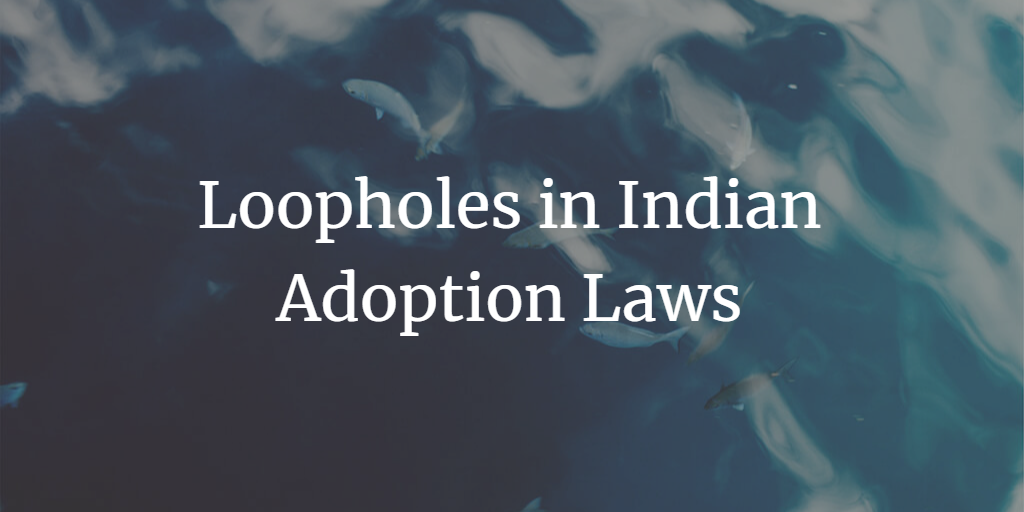Loopholes in Indian Adoption Laws: A Critical Analysis

India's adoption laws have evolved over time, but several loopholes still persist. This blog examines the shortcomings in the adoption laws and suggests improvements to ensure the rights of adoptive parents and adopted children are better protected.
Table of Contents
Introduction to Adoption Laws in India
Loopholes in Adoption Laws
Recommendations for Improvement
Conclusion
1. Introduction to Adoption Laws in India
In India, adoption laws are governed by multiple statutes, depending on the religion and personal laws of the parties involved. The primary laws are:
The Hindu Adoption and Maintenance Act, 1956 (HAMA) - applicable to Hindus, Sikhs, Buddhists, and Jains.
The Guardians and Wards Act, 1890 (GAWA) - applicable to Muslims, Christians, Parsis, and Jews.
The Juvenile Justice (Care and Protection of Children) Act, 2015 (JJ Act) - a secular law applicable to all communities.
2. Loopholes in Adoption Laws
Despite the existence of various adoption laws in India, several loopholes persist, including:
Lack of a Uniform Adoption Law: India does not have a uniform adoption law applicable to all communities. This fragmentation leads to confusion and inconsistency in adoption procedures.
Inadequate Provisions for Muslims, Christians, Parsis, and Jews: Under GAWA, adoption is not recognized for these communities, and only guardianship is granted, which does not provide the same rights as adoption.
Gender Bias: HAMA contains provisions that discriminate based on gender. For instance, a single male cannot adopt a girl child, and a married woman can adopt only with her husband's consent.
Lengthy Legal Processes: The adoption procedure under the JJ Act is time-consuming, often taking several years to complete.
3. Recommendations for Improvement
To address the loopholes in India's adoption laws, the following recommendations can be considered:
Establish a Uniform Adoption Law: A comprehensive and uniform adoption law should be implemented, which is secular and applicable to all communities, ensuring equal rights and opportunities for adoptive parents and adopted children.
Revise Gender Bias Provisions: Amend the adoption laws to remove gender bias and promote gender equality in the adoption process.
Streamline Legal Procedures: Simplify and expedite the legal processes for adoption, reducing unnecessary delays and ensuring timely completion of adoptions.
Increase Awareness and Transparency: Promote awareness about adoption laws and procedures among the general public, and ensure transparency in the functioning of adoption agencies.
4. Conclusion
While India's adoption laws have evolved over time, there is still much work to be done to address the existing loopholes. By implementing the recommended changes, the Indian legal system can work towards protecting the rights of adoptive parents and adopted children, promoting the well-being of all parties involved, and ensuring a more equitable and efficient adoption process.
Adoption is a noble act that brings joy to countless families, and it is essential for the legal framework to support and facilitate this process. By addressing the loopholes in India's adoption laws, the nation can strengthen the foundation for thousands of families and adopted children, ensuring their rights are protected and their bonds are legally recognized.
Implementing a uniform adoption law, revising gender-biased provisions, streamlining legal procedures, and increasing awareness and transparency will go a long way in improving the adoption process in India. These changes will not only ensure consistency and fairness in adoption procedures but also contribute to creating a more inclusive and progressive society.
While change may not be easy, it is necessary for the betterment of countless lives touched by adoption. The time has come for India to reevaluate its adoption laws, and through collective efforts, work towards creating a more just and equitable legal framework for all those involved in the adoption process.


